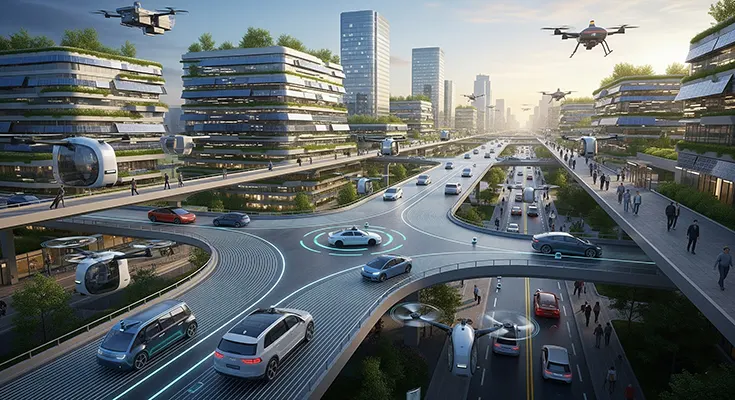The Connected Metropolis: The Future of Autonomous Transportation in Smart Cities
The vision of a smart city—an urban environment where data, technology, and connectivity enhance the quality of life for its residents—is inextricably linked to the future of autonomous transportation. As autonomous vehicles (AVs) transition from a futuristic concept to a commercial reality, their integration with smart city infrastructure is set to revolutionize urban mobility, promising safer, more efficient, and more sustainable cities. This transformation is not simply about driverless cars; it is about building a new ecosystem where vehicles, infrastructure, and people communicate seamlessly to create a living, breathing, and intelligent network.
From Standalone Vehicles to a Connected Ecosystem
The key to unlocking the full potential of AVs in smart cities lies in their ability to communicate with both each other and the urban infrastructure. This “Vehicle-to-Everything” (V2X) communication is the digital nervous system of the smart city, allowing for a level of coordination and efficiency that is impossible with …












